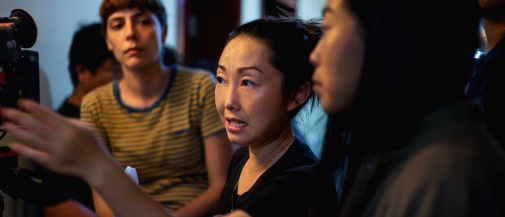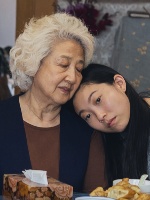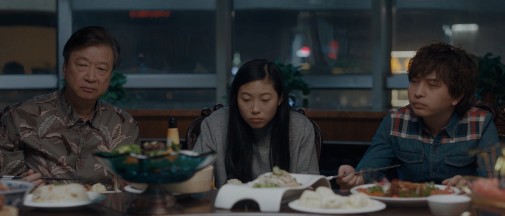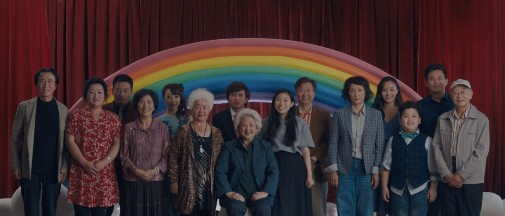by Cláudio Alves

With the advent of Awards Season, we have to contend with the disappointment that always comes hand-in-hand with the excitement and the joy. No matter how much great work is nominated and rewarded, there's always a snub to point out and cry over. The recent Independent Spirit Awards nominations perfectly exemplify such dynamics. This year, they decided to spread the wealth and ignored the Siren's call of just nominating Oscar-viable titles. All in all, it's a wonderful collection of honors and achievements, but even here there is cause to complain about the dreaded snubs.
Why didn't Lulu Wang score a nomination for Best Screenplay or Best Director? How can The Farewell be up for Best Feature and not for either of those awards?...
 In the great scheme of things, the Screenplay snub seems easier to dismiss. After all, even with this lack of nomination, Wang still seems well poised to score in the Oscars' highly competitive Original Screenplay category. Best Director is a different story altogether, with many people feeling that The Farewell's direction isn't as impressive as its achingly personal narrative or the excellence of the cast.
In the great scheme of things, the Screenplay snub seems easier to dismiss. After all, even with this lack of nomination, Wang still seems well poised to score in the Oscars' highly competitive Original Screenplay category. Best Director is a different story altogether, with many people feeling that The Farewell's direction isn't as impressive as its achingly personal narrative or the excellence of the cast.
I find this galling. The Farewell's as great an achievement of directing as it is of writing and acting. Moreover, I'd go as far as to say that the film's most impressive qualities are Lulu Wang's deft staging, the way she blocks actors and uses the intricacy of the wide frame to complement the script's ideas of familial bonds and cultural barriers. In other words, no matter how masterful she is in every regard, Lulu Wang is a better director than she is a screenwriter.
Her framing of Awkwafina is a particular stroke of genius. The Farewell's leading lady is often positioned either in the middle of the frame or at its margins, always an uncomfortable visual element in more organically organized domestic tableaux. Whether she's running through urban landscapes or awkwardly inserted into tense family gatherings, Awkwafina is always out of place, exposed or shoved to the side depending on the scene's mood.
Wangs's strange compositions, full of emptiness over the actors' heads, augment such feelings of a domestic idyll that's unbalanced and forcefully organized. Nothing in the film better represents the collective labor of performing casualness in the face of grief that the story's family has to go through. This reaches its zenith during meal scenes when the rhythm of response and the camera's swivel visualize the tension that consumes the character's whole beings.

During a particularly volatile dinner conversation, Wang stages the scene around a circular table. She cuts between the different family members instead of composing them in a wide shot as a unit. This fragments them and makes each burst of dialogue into a spark of visual aggressiveness. To make the situation feel even more stilted and emotionally precarious, each time someone speaks they are framed at the center of the shot, resulting in a constant repositioning of the camera and consequently, the audience's point of view.
That's a belabored way of saying that Wang is amazing behind the camera, using the tools of audiovisual storytelling to extrapolate the interior storms that ravage her character's souls. It's surprisingly showy, but also subtle because of how it works in service of the emotional rapport of the cast instead of calling attention to its formalistic excellence. In that regard, Lulu Wang's directorial discipline maybe her downfall on the awards circuit, where subtlety is often ignored in favor of more maximalist approaches.

No matter her lack of nominations, Lulu Wang's directing chops should be celebrated. The Farewell is genuinely one of the best-directed films of the year and the Oscars would be doing a favor to themselves by recognizing such merit instead of other more traditional and expected options.